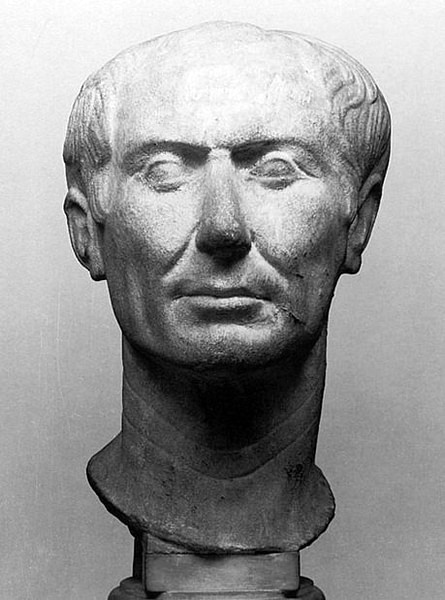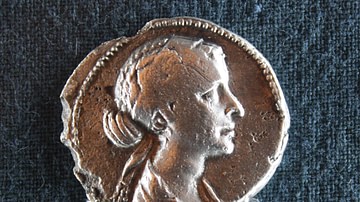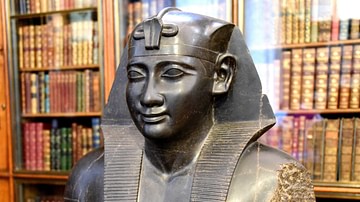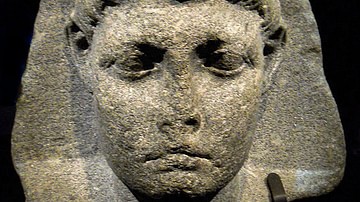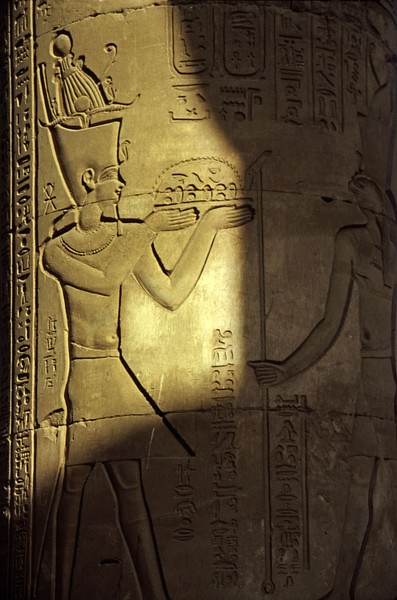
Ptolemy XIII Theos Philopator (The Father-loving God, born 62/61 BCE, died 47 BCE) was pharaoh of Egypt from 51 BCE until his death. His reign began as co-ruler with his sister, the famous Cleopatra VII, following the wishes of their father, Ptolemy XII Auletes. Ptolemy battled with Julius Caesar for control of Egypt but was defeated at the Battle of the Nile in 47 BCE. He drowned, aged 15, while trying to escape the victorious Roman dictator.
A Brief Joint Rule
Ptolemy was just eleven years old on ascending to the throne. Cleopatra was eighteen and took the early lead in the relationship, appearing on coinage and named alone in official documents. Due to Ptolemy's age, a regent was appointed for him, the eunuch Pothinus. Pothinus and some other court officials – most notably Achillas, the general, and Theodotus, Ptolemy's tutor – formed a closely-knit group with the young Ptolemy. In 48 BCE, this group sought to depose Cleopatra, fearful of her ambition and power. Cleopatra fled to Syria, intending to raise an army and return as ruler of Egypt.
The Romans Arrive
At this time, the Roman statesman Pompey arrived in Egypt after a disastrous loss to Julius Caesar in their own civil war. Pompey appealed to Ptolemy for aid, calling upon the good relations between himself and Ptolemy's father, Ptolemy XII, whose claim to the throne he had helped gain official recognition in Rome. The pharaoh and his group consulted, deciding upon a plot to pretend to welcome Pompey but to actually kill him and use his murder to make an alliance with Caesar, who was clearly winning the war for Rome.
Caesar arrived in Egypt, landing at Alexandria, chasing Pompey but unaware of his death. The Egyptian court immediately had Pompey's head delivered to the dictator. Upon learning of the murder of his rival, Caesar expressed his disgust, ending any Ptolemaic hope for an alliance.
Under Caesar's Thumb
Summoning the warring siblings to him, Caesar attempted to negotiate a peace between Ptolemy and Cleopatra. Cleopatra took the opportunity to approach Caesar with different tactics, sneaking into the palace at Alexandria that Caesar was occupying and – reading the situation – becoming his lover. Caesar used his authority as dictator of Rome and an apparent will left by Ptolemy XII – the former pharaoh having conveniently sent one copy to Rome and kept one in Alexandria – to reunite the two as co-rulers of Egypt. In the same action, he made their younger siblings Ptolemy (the future Ptolemy XIV) and Arsinoe IV rulers of Cyprus.
With Ptolemy now in Caesar's possession, the Egyptian court continued its campaign against Caesar under Achillas, Pothinus having travelled with Ptolemy and been executed by Caesar. Arsinoe managed to escape Caesar's custody while Achillas and the Egyptian army occupied Alexandria, being accepted as their ruler, providing legitimacy by association with someone of royal blood. In-fighting began, the disputes between the trio of Arsinoe, her advisor Ganymedes and Achillas resulting in Achillas's murder. This barely quelled the dissent, however, and the Egyptians petitioned Caesar for the return of Ptolemy, in exchange for Arsinoe, the war effort having fallen away somewhat after initial successes.
Return to Freedom & the Conclusion of War
Caesar agreed to the trade, believing it better for his reputation to defeat Ptolemy than Arsinoe and using the opportunity to stall while waiting for reinforcements. Caesar himself tells us that Ptolemy cried upon being told he had to leave him, but the young pharaoh immediately resumed the war effort, even with his two most prominent advisors – Pothinus and Achillas – now dead. Shortly afterwards, Caesar finally welcomed reinforcements, ending his long numbers disadvantage. This, allied with Ptolemy's tactical inexperience – and loss of his chief advisors and military strategists – against Caesar's tactical acumen was eventually to be the pharaoh's downfall. After a series of battles, Caesar outmanoeuvred Ptolemy XIII in the Battle of the Nile, breaking his forces and forcing him to flee. In early 47 BCE, Ptolemy XIII Theos Phliopator drowned in the Nile, trying to escape a victorious Caesar, at just 15 years old. Caesar now had complete control of Egypt, reinstating Cleopatra VII to the throne, who became co-ruler with her even younger (aged 13) brother, Ptolemy XIV Theos Philopator II.
